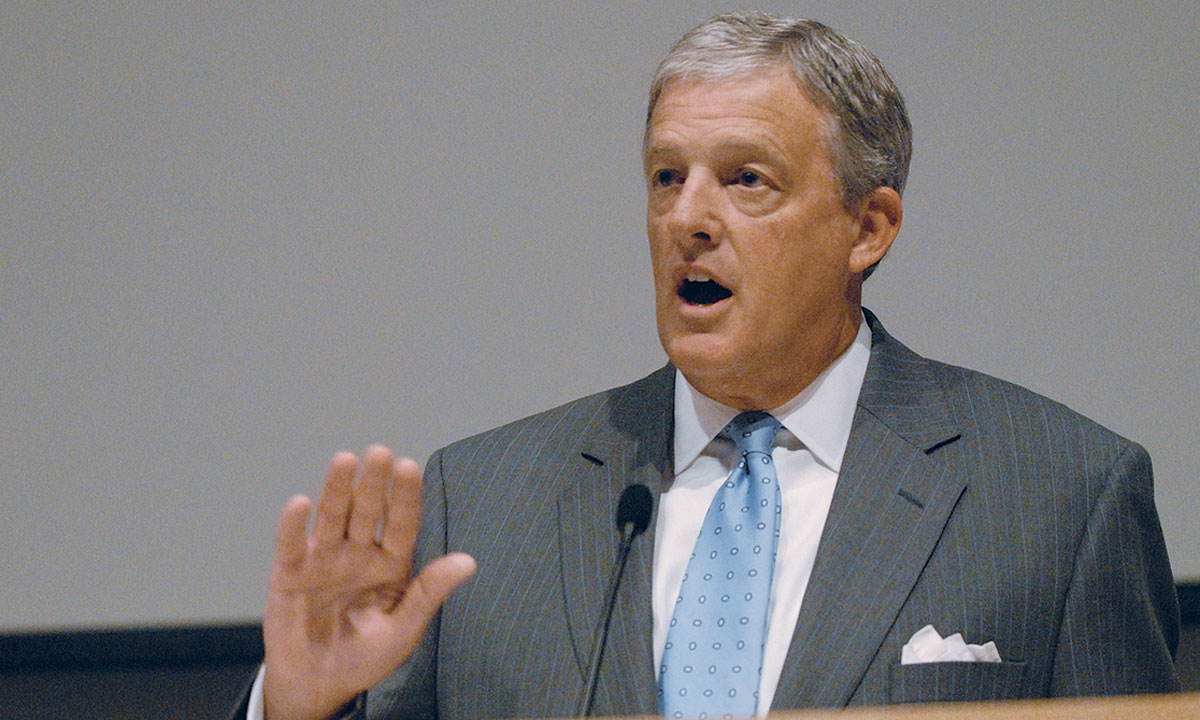Investment in education a must
Being the Change
An investment in education is a must for the nation’s economic growth
With Congress’ recent action on the federal stimulus package, there appears to be some good news on the horizon for higher education. The Virginia General Assembly has allocated more than $7 million in federal stimulus dollars to JMU to offset the planned $11.7 million in cuts for next year. These funds will enable us to moderate anticipated tuition charges to students and their families and soften the economic blow for JMU, giving time for the economy to begin to right itself in the latter half of 2009 and in 2010. Should the condition of the economy not improve thereafter, JMU will have to move forward with budget cuts, but with a clear mandate to preserve and protect our institutional core.With the nation’s economy foremost on everybody’s mind, it will come as no surprise that we have been preparing for what looked to be substantial budget cuts at James Madison University due to a projected shortfall in Virginia tax revenue. Ralph Waldo Emerson wrote, “Difficulties exist to be surmounted.” It is with this attitude that we conduct the business of education during these uncertain times. It is the same approach Dave Sanderson (’83) took recently as a passenger aboard US Airways Flight 1549 when it crash-landed in the Hudson River. Sanderson, one of the last people to exit the plane, was instrumental in saving the lives of others.
Designating $7 million of the federal stimulus for JMU is prudent thinking on the part of our Virginia elected officials. They recognize that sustained prosperity is a product of an educated populace. For that reason, investment in education is a prerequisite for the economic growth of our nation. Mastery of a shifting set of knowledge and skills is absolutely necessary as new business paradigms emerge and new fields of endeavor arise.
JMU graduates are well positioned to bridge the gap and fill shortages in dynamic fields. College of Business 2007 graduates had the 11th-highest pass rate in the nation among students without advanced degrees who took the Uniform Certified Public Accountants examination for the first time. Passing the exam is the first step toward earning the coveted CPA license.
Our nursing graduates are immensely successful as well. In response to the alarming shortage of nurses nationwide, the JMU Department of Nursing more than doubled the size of its Bachelor of Science in Nursing program and fully revised the curriculum. During this expansion, from 2005 to 2008, graduates maintained pass rates for first-time test takers of 90 percent to 96 percent on the R.N. Nursing Certification and Licensure Exam.
In 2008, JMU’s master’s-level physician assistants achieved a 100 percent first-time pass rate on the National Commission on Certification of Physician Assistants. Physician assistants are health care professionals licensed to practice medicine with physician supervision, and the Bureau of Labor Statistics predicts their demand will remain in the highest projected category of need.
Our teachers, whom JMU has been preparing faithfully since our founding 100 years ago, remain impressive with 100 percent pass rates on the Praxis tests and Virginia Communication and Literacy Assessment and Virginia Reading Assessment. The success of our teacher education program directly affects the prosperity of the nation, as teachers inspire our country’s youth and equip them with the knowledge and skills they need to be contributing members of society.
Supplementing the impact of our traditional students, the JMU Outreach and Engagement Office provides educational programs to meet specific workforce needs in a shifting economy. In Martinsville, Va., for instance, a community affected by fading industries, a JMU Adult Degree Program is helping to rebuild the workforce, equipping individuals with the skills to match a new wave of incoming businesses.
The connective tissue among all of these JMU success stories is the vital purpose they serve in sustaining an evolving economy. For the same reason, we will continue to seek additional private and public support for our newest JMU initiatives, particularly as we continue to develop the new sustainability-focused School of Engineering, which offers the kind of innovation our economy requires to renew itself.
This is also true as we finish building the Performing Arts Center and continue the expansion of Bridgeforth Stadium, as these and our other capital construction projects stimulate job creation.
At JMU, we have a responsibility to contribute to the health of the local and state economy. Our elected officials recognized this as they designated federal stimulus dollars for higher education. An investment in higher education is a necessity in returning the state and nation to a position of vibrancy.
The federal stimulus is of course a temporary measure, and the possibility of budget cuts remains. As we consider what budget adjustments we still might have to make at JMU in the future, we will seek first and foremost to protect the excellence of the educational mission. In both the short and the long run, our graduates will make the difference to our sustained collective prosperity.
Linwood H. Rose, President
James Madison University
